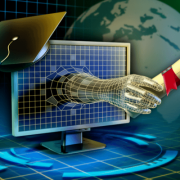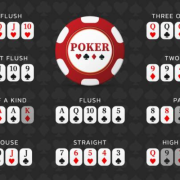As the healthcare landscape continues to evolve, innovation in nursing programs is more needed than ever to address unmet needs. In this pursuit, two additional emerging technologies—Electronic Health Records (EHRs) and ePortfolios—come to the forefront, offering unique advantages in preparing nursing students for the challenges of contemporary healthcare.
Adapting to Change: The Role of Emerging Technologies in Nursing Education
In the ever-evolving realm of nursing education, embracing change is paramount to staying ahead. As we delve into the potential of emerging technologies, it’s crucial to recognize their role as catalysts for transformation. The infusion of Virtual Simulation, Video Capture Software, EHRs, and ePortfolios doesn’t just represent a technological upgrade; it signifies a fundamental shift in how nursing students are prepared for real-world scenarios. These innovations bridge critical gaps—offering accessibility, improving practice readiness, and enhancing program capacity. By fostering a culture of innovation, nursing programs can empower students to navigate the complexities of modern healthcare, ensuring they graduate not just as practitioners but as adept contributors to the ongoing evolution of nursing practice. As we navigate these technological frontiers, the commitment to innovation becomes synonymous with a commitment to shaping the future of nursing.
Electronic Health Records (EHRs): The integration of EHRs into nursing education signifies a shift towards technology-driven healthcare practices. EHRs streamline the documentation process, providing students with hands-on experience in managing digital health records. By incorporating EHR training into the curriculum, nursing programs prepare students for the technology-centric environments they will encounter in their professional careers. This not only enhances their digital literacy but also contributes to the seamless transition from education to practice.
The benefits extend beyond digital proficiency. EHRs offer a holistic view of patient care, fostering an understanding of comprehensive healthcare management. Nursing students can learn to navigate and contribute to patient records, understand interdisciplinary communication, and grasp the significance of data-driven decision-making. As healthcare systems increasingly adopt EHRs, integrating this technology into nursing education becomes imperative for producing competent and tech-savvy nursing professionals.
ePortfolios: Another valuable addition to the nursing education toolkit is the utilization of ePortfolios. In a digital era, where showcasing skills and accomplishments is pivotal, ePortfolios offer a dynamic platform for students to compile evidence of their learning journey. These electronic portfolios go beyond traditional resumes, allowing students to curate a collection of their best work, reflections, and achievements.
The advantages of ePortfolios are multi-faceted. They empower students to take ownership of their learning, encouraging reflection on experiences and growth. Additionally, ePortfolios serve as a comprehensive assessment tool, enabling faculty to evaluate students’ progress, competencies, and critical thinking skills. When integrated into nursing programs, ePortfolios contribute to a culture of continuous improvement, where students actively engage in self-assessment and goal-setting.
Preparing for the Next Generation
As nursing programs navigate the future, a strategic investment in EHRs and ePortfolios can significantly contribute to preparing the next generation of nursing professionals. These technologies not only align with the digital transformation in healthcare but also empower students to become adaptable, tech-savvy contributors to the ever-evolving field of nursing.
In conclusion
The landscape of nursing education is evolving, and embracing these emerging technologies ensures that nursing programs stay at the forefront of innovation. The seamless integration of EHRs and ePortfolios into the curriculum creates a dynamic learning environment that prepares nursing students for the complexities of modern healthcare delivery. Through these advancements, nursing education can continue to address unmet needs, foster critical thinking, and produce graduates ready to excel in diverse and technologically advanced healthcare settings.


















Comments